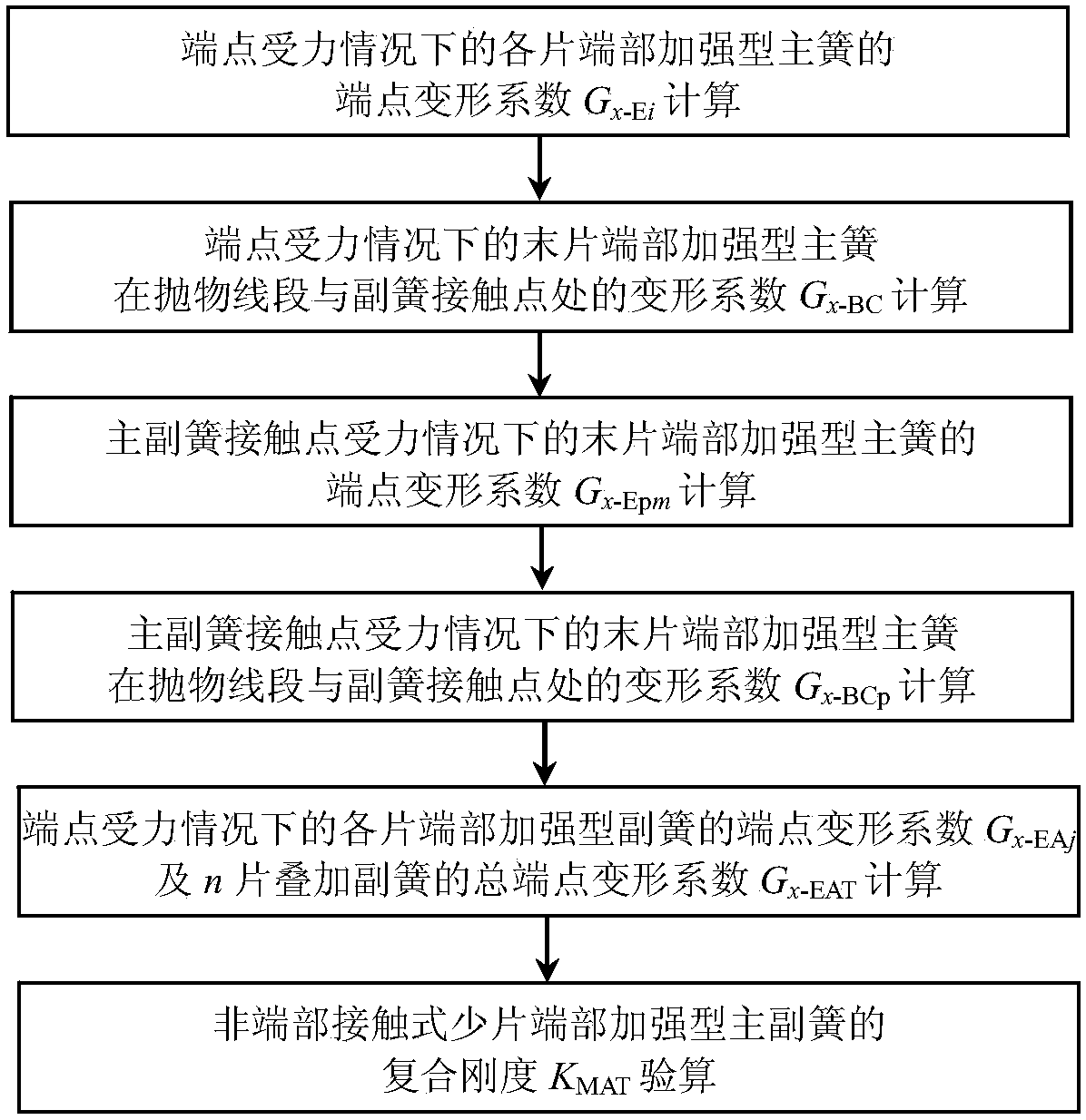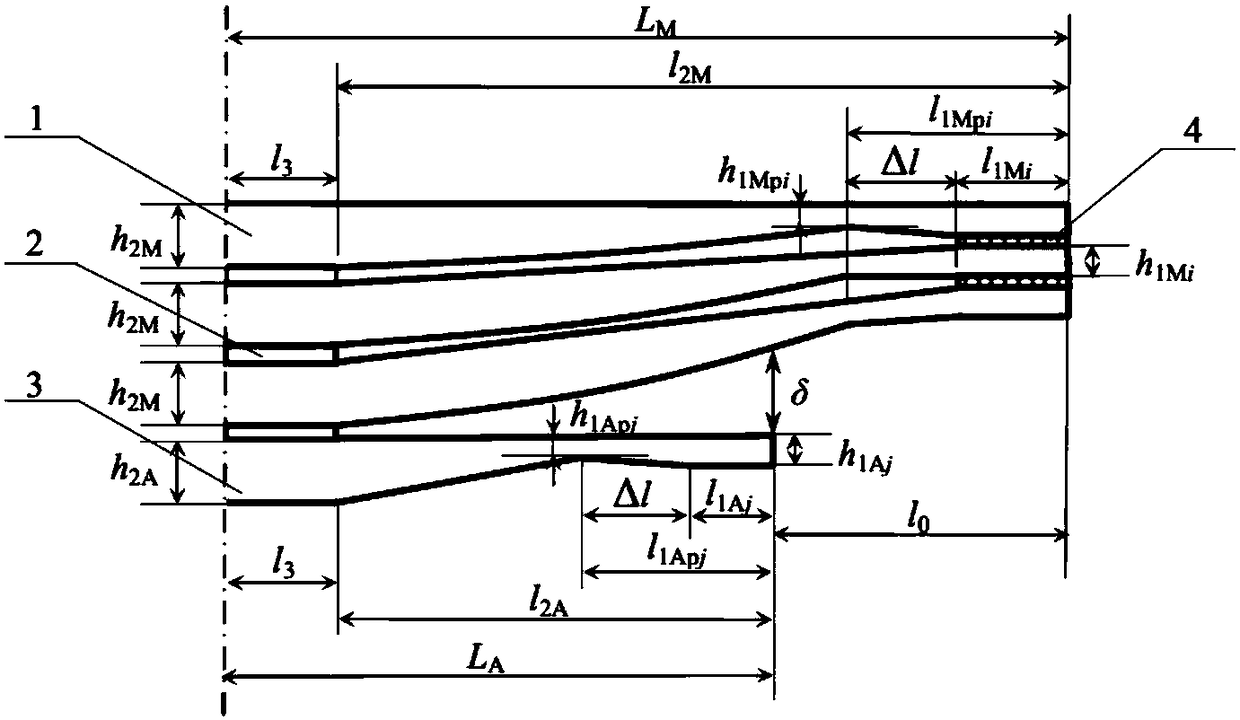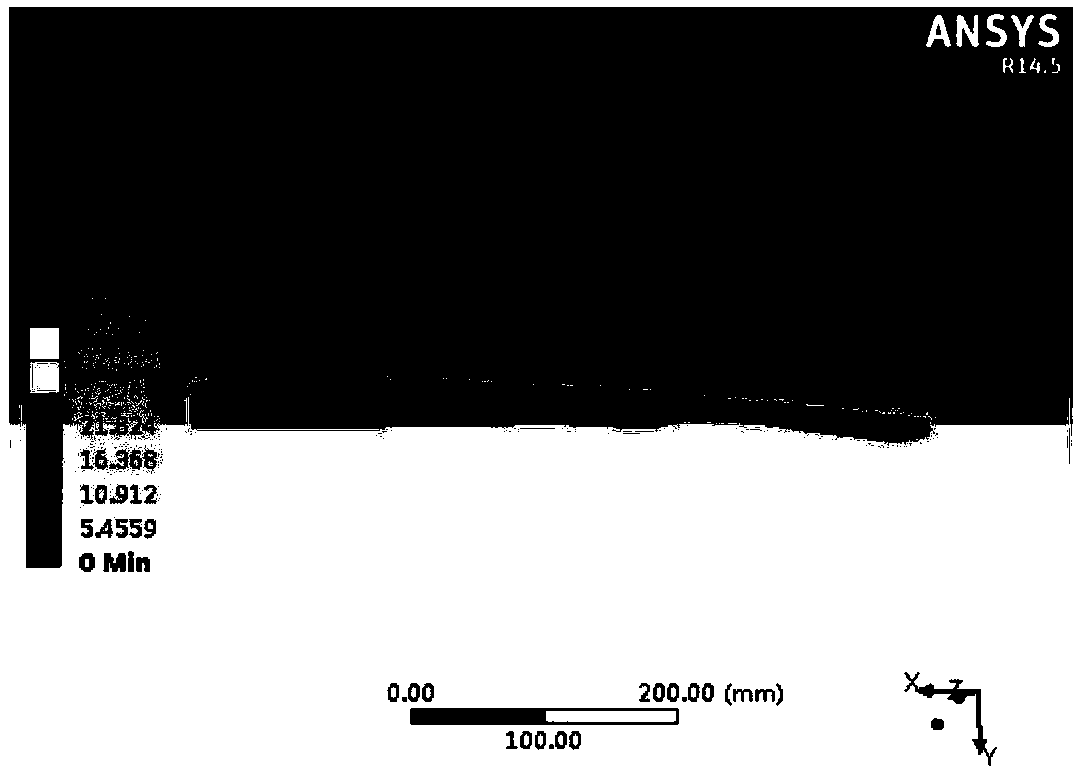Calculation Method of Composite Stiffness of Primary and Secondary Springs of Non-end-contacting Few-piece End-reinforced Type
A composite stiffness and contact technology, applied in the field of vehicle suspension leaf springs, can solve problems such as the inability to provide the analytical calculation formula for the composite stiffness of the main and auxiliary springs, and the inability to meet the requirements.
- Summary
- Abstract
- Description
- Claims
- Application Information
AI Technical Summary
Problems solved by technology
Method used
Image
Examples
Embodiment 1
[0034] Embodiment 1: The width of a non-end contact type few-piece end-reinforced primary and secondary springs is b = 60 mm, half of the installation distance l 3 =55mm, length Δl of oblique line segment=30mm, elastic modulus E=200GPa. Half the length L of the main spring M =575mm, the thickness h of the straight section at the root of each main spring 2M =11mm, the distance l from the root of the parabola segment to the end point of the main spring 2M = L M -l 3 =520mm; the number of main reeds m=2, where the end thickness h of the parabolic segment of the first main spring 1Mp1 =6mm, that is, the thickness ratio of the parabola segment β 1 =h 1Mp1 / h 2M =0.55, the distance l from the end of the parabola segment to the end point of the main spring 1Mp1 = l 2M beta 1 2 =154.71mm, the thickness h of the straight section at the end 1M1 =7mm, the thickness ratio of the oblique line segment γ M1 =h 1M1 / h 1Mp1 =1.17, the length l of the straight section at the end ...
Embodiment 2
[0062] Embodiment 2: The width b of a non-end contact type non-end contact type few-piece end-reinforced primary and secondary springs is 60mm, half of the installation distance l 3 =60mm, the length of the oblique segment Δl=30mm, and the modulus of elasticity E=200GPa. Half the length L of the main spring M =600mm, the thickness h of the straight section at the root of each main spring 2M =12mm, the distance l from the root of the parabola segment to the end point of the main spring 2M =L M -l 3 =540mm; the number of main reeds m=2, where the end thickness h of the parabolic segment of the first main spring 1Mp1 =6mm, the thickness ratio of the parabola segment β 1 = h 1Mp1 / h 2M =0.5, the distance l from the end of the parabola segment to the end point of the main spring 1Mp1 = l 2M beta 1 2 =135mm, the thickness h of the straight section at the end 1M1 =7mm, the thickness ratio of the oblique line segment γ M1 = h 1M1 / h 1Mp1 =1.17, the length l of the strai...
PUM
 Login to View More
Login to View More Abstract
Description
Claims
Application Information
 Login to View More
Login to View More - R&D
- Intellectual Property
- Life Sciences
- Materials
- Tech Scout
- Unparalleled Data Quality
- Higher Quality Content
- 60% Fewer Hallucinations
Browse by: Latest US Patents, China's latest patents, Technical Efficacy Thesaurus, Application Domain, Technology Topic, Popular Technical Reports.
© 2025 PatSnap. All rights reserved.Legal|Privacy policy|Modern Slavery Act Transparency Statement|Sitemap|About US| Contact US: help@patsnap.com



